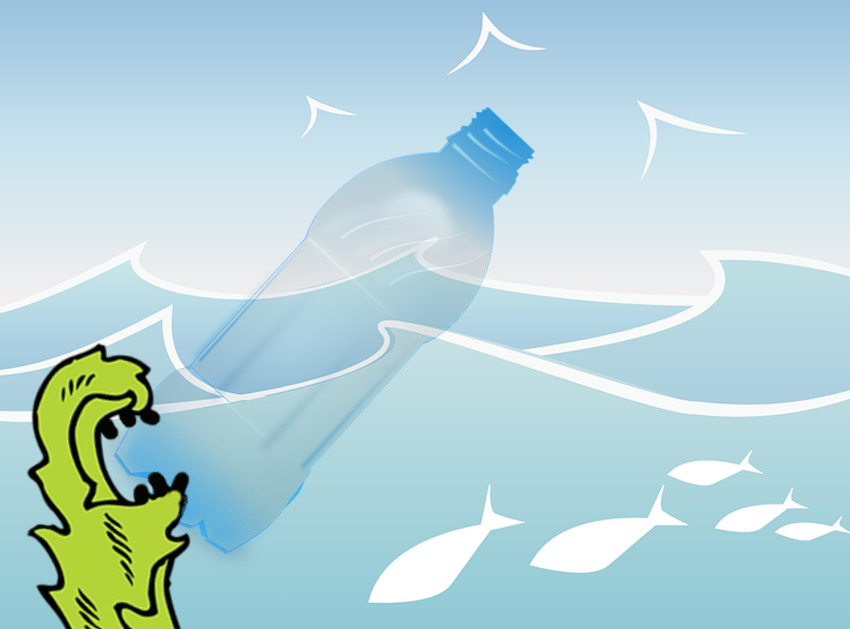The biological degradation of plastics is currently investigated as an eco-friendly recycling strategy. In 2016, the bacterium Ideonella sakaiensis was isolated which could degrade polyethylene terephthalate (PET) using PETase and use the degradation products as its sole carbon source [1].
Daniel Moog, Philipps University Marburg and SYNMIKRO Research Center, Marburg, Germany, and colleagues have used synthetic biology to turn the photosynthetic microalga Phaeodactylum tricornutum into a microbial cell factory which produces and secretes an engineered version of PETase into the surrounding culture medium.
The produced PETase was active against industrially shredded PET in a salt water-based environment even at mesophilic temperatures (21 °C). PET degradation was particularly effective for plastic pieces smaller than 1 cm and at a water temperature of 30 °C. The degradation products were mainly terephthalic acid (TPA) and mono(2-hydroxyethyl) terephthalic acid (MHET). The team estimated that they are formed in the micromolar range under the selected reaction conditions.
According to the researchers, the modified microalgae could help to break down microplastics and PET plastics in the ocean. To achieve this, the system must be further optimized.
- Using a marine microalga as a chassis for polyethylene terephthalate (PET) degradation,
Daniel Moog, Johanna Schmitt, Jana Senger, Jan Zarzycki, Karl-Heinz Rexer, Uwe Linne, Tobias Erb, Uwe G. Maier,
Microbial Cell Factories 2019.
https://doi.org/10.1186/s12934-019-1220-z
[1] S. Yoshida, K. Hiraga, T. Takehana, I. Taniguchi, H. Yamaji, Y. Maeda, K. Toyohara, K. Miyamoto, Y. Kimura, K. Oda, A bacterium that degrades and assimilates poly(ethylene terephthalate), Science 2016, 351, 1196–9. https://doi.org/10.1126/science.aad6359




